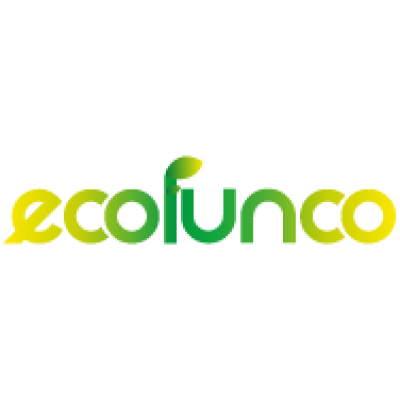‘One aspect of the ECOFUNCO project is to use waste from food production. This is available in big quantities and, after certain treatments, can have important functionalities for packaging,’ explained Andreas Michalsky, New Product Development Manager at Huhtamaki, a large packaging company participating in the ECOFUNCO project.
Waste from food production is available in big quantities and can have important functionalities for packaging.
Andreas Michalsky, Huhtamaki New Product Development Manager
Scores of applications
The ECOFUNCO partners identified agricultural and food production waste as suitable raw materials for the coatings. They then looked for widely available but underused materials and assessed the availability and sustainability of various feedstock.
The products developed in the project include tissues, tissue boxes and paper, cardboard, trays, films and lids for packaging fresh products like pasta, meat or dairy products. In addition, woven and non-woven personal care products such as nappies, incontinence pads and feminine hygiene products have been made, all with cellulose-based antimicrobial coatings.
The project has also created tableware, paper cups, packaging with water-repellent coatings, and multi-layered food packaging with protein-based coating. They have also tested the multi-layered packaging on perishable products such as sliced cheese and ham from ECOFUNCO partner Consorzio del Prosciutto di Parma.
Ready for the market
We have been reducing the amount of plastic that we normally use for trays of pre-sliced Parma ham. The ECOFUNCO project completely matches our goal.
Chiara Piancastelli, Head of the Food Safety and Research Office, Consorzio Del Prosciutto Di Parma.
Paper, cardboard and tissue with antimicrobial coatings have already been produced at an industrial scale with positive results and are likely to be fully industrialised soon. In particular, the participation of the Consorzio Del Prosciutto Di Parma, which brings together 134 Parma ham producers, augurs well for a wide use of the coatings for meat packaging.
‘It is very important to participate in the ECOFUNCO project as we are always very careful about aspects linked to sustainability. For instance, for some time now, we have been reducing the amount of plastic that we normally use for trays of pre-sliced Parma ham. In this sense, the ECOFUNCO project completely matches our goal,’ said Chiara Piancastelli of the Consorzio Del Prosciutto Di Parma.
Technological performance meets sustainability
The partners explored different combinations of antimicrobial, water-repellent and multi-layered properties with a view to developing further applications.
‘ECOFUNCO is important for the future because it perfectly meets the circular economy idea. Any by-products and waste from production are transformed; not getting discarded but becoming something valuable, ecologically and economically sustainable and technologically performant,’ said ECOFUNCO coordinator Patrizia Cinelli of INSTM-University of Pisa.
Another advantage of the coatings is their sustainable end-of-life options. ‘We have to look at the end of life for all materials. We have to include, in our offer to our customers for packaging, good end-of-life possibilities for collection, sorting, recycling or biodegradation,’ added Andreas Michalski.
From food waste to green coatings
Waste from the processing of tomatoes, apples, watermelons, legumes and sunflowers was among the by-products chosen. From these residues, the project optimised existing methods to extract molecules such as proteins, cutin, polysaccharides, polyphenols, carotenoids and fatty acids. This was performed by the University of Alicante in Spain, the Fraunhofer Institute for Process Engineering and Packaging in Freising, Germany, the University of Sheffield in the UK, the Belgian scientific and technical services centre Celabor, and the Experimental Station for the Food Preserving Industry (SSICA) research foundation from Italy.
Any by-products and waste from production are transformed; not getting discarded but becoming something valuable, ecologically and economically sustainable and technologically performant.
Patrizia Cinelli, ECOFUNCO project coordinator
Using various technologies, the Spanish technology group IRIS monitored the coating process, and the molecules were blended and adapted to obtain the required properties, with the Spanish chemical company Condensia Quimica, ensuring the right selection of additives. This led to the formulation of coatings that meet health and safety requirements – as verified by the Italian analysis laboratory ARCHA – and are more effective than their fossil-based equivalents in guarding against microbes, moisture or decay and extending the shelf life of food.
The coatings were applied to cellulose-based materials – with the expertise of Italian research organisation Lucense – and to bio-based plastics. It was then possible to develop products at a semi-industrial scale through the efforts of the following industrial partners: packaging manufacturers Bio-mi from Croatia and Tipa from Israel; Italian plastics producer Planet Bioplastics; and Turkish chemical company Organik Kimya.
Bringing the project results beyond
The partners continue to look for opportunities to work with researchers and professionals interested in exploiting the project results for all kinds of industrial applications. Furthermore, an online ECOFUNCO platform has been set up to gather resources that can help organisations in the bio-based chemicals sector to make the transition to circular and sustainable approaches. Further research is underway and planned, in particular, on the use of chitin and chitosan derived from alternative sources such as insects and on the optimisation of cutin application, including for coating of tissue substrates.

